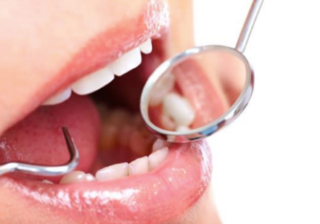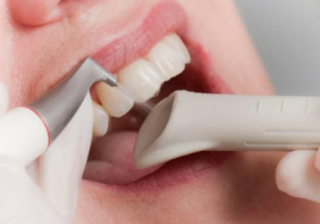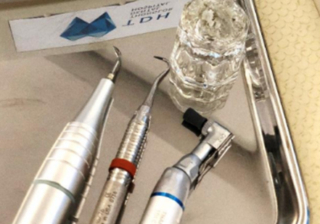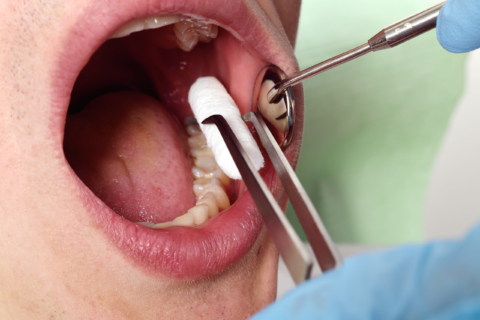
General Dentistry
General dentistry is dental services covering dental checkup, x-ray, and consultation to ensure the most effective and suitable solutions for oral health.
Dental Consultation
Dental consultation is a first step of dental treatment in developing an accurate and effective treatment plan, may involve x-ray and teeth impression.

Dental Scaling and Polishing
Dental Scaling and Polishing
Dental Scaling and Polishing is a procedure to eliminate the tartar and plaque building up on the teeth and gumline. The dentist may polish the teeth with fluorite composites to get rid of the discoloration caused from food stain.


Why Tooth Scaling and Polishing is necessary?
Dental Scaling and Polishing is a treatment to remove a collective plaque or tartar. When the plaque is hardened, it will form into tartar and can not be eliminated by brushing the teeth. Untreated plaque building up on the teeth and gumline may lead to gum disease, tooth decay, discoloration, bad breathing, and tooth loss.
Tooth Scaling and Polishing Process
- The dentist will check the oral condition and amount of tartar
- Then, the dentist will scrap the tartar with high frequency scaler.
- Finish off by polishing the teeth.
Tooth Scaling and Polishing Duration
Tooth scaling and polishing process usually takes about 1 hour depends on the amount of tartar.
Lifespan of Tooth Scaling and Polishing
It is recommended to do tooth scaling and polishing every 6 months because plaque is always building up on the teeth.
Tooth Scaling and Polishing Aftercare
- Brush with teeth with fluorite toothpaste at least twice a day
- Avoid too hot/cold, sour, sweet food and drinks that may create sensitivity
- Use dental floss and mouthwash regularly
- Avoid smoking because researches found smokers may collect more stain than non-smokers
- Have an appointment with the dentist every 6 months to do check up and tooth scaling and polishing treatment
FAQ
A : People who need to be careful about scaling and polishing their teeth include:
- Chronic Disease those who have diabetes, high blood pressure, liver disease, cardiovascular/ heart disease should be under the dentist and doctor’s special care to prevent from any side effect from tooth scaling and polishing.
- Patient with Pacemaker Insertion Patient with pacemaker insertion is not recommended to do tooth scaling and polishing with electric scaler, since the scaler may distract the pacemaker device and stimulate Cardiac Arrhythmia. It is recommended to use hand-held instruments only.
A : It is quite normal to have sensitivity during tooth scaling and polishing. The sensitivity is caused when removing tartar from the tooth, the tooth does not have any covering, so it creates a certain response such as pain or feeling sensitive. However, if the patient feels too sensitive, an anesthetic can be used to numb the area.
A : We do not recommend self-scaling and polishing because it may cause injury, wound or swollen gum. Dental scaling and polishing performed by the dentist who uses tools especially for scaling and polishing is more recommended.
Tooth Filling
Why Tooth Filling ?
Tooth filling is used to repair the decay tooth, to restore both function and appearance of the decay tooth to back to normal and eliminate the chances of tooth decay. Filling is performed by removing the decay tooth and replacing the area with the dental filling.

Types of Fillings
- Amalgams : silver color, strong, durable, usually used on molar teeth
- Composite Resin : tooth-colored, looks natural, good appearance, popular for front tooth
Filling Process
- The dentist will examine the teeth, may involve X-ray
- Anesthetics may be used to numb the area in case of deep tooth decay, or the patient feels discomfort
- Drilling and removing the inflected tooth
- Polishing the area to prepare for the dental filling
- Placing with dental filling
- Polishing the tooth surface and doing biting/chewing test
Filling Duration
Filling treatment usually takes about 1-2 hours depends on the case’s difficulties.
Lifespan of Filling
Filling lifespan is also depending on the aftercare.
Filling Aftercare
- Having front tooth filling should avoid chewing or biting hard food because the filling material may break or scratching the tooth surface
- Brush the teeth with toothbrush, use dental floss and mouthwash
- Have an appointment with the dentist every 6 months to check the oral health and filling’s condition
FAQ
A : This is signs of tooth decay;
- Toothache and sore gum
- Swollen gum
- Bad breathing or bad taste in the mouth
- Tooth sensitivity
A : For those who wear retainer or denture, it is recommended to bring the retainer or denture on the treatment day. After the treatment, the dentist will ask the patient to wear retainer or denture to check the overall alignment. Additional teeth polishing or drilling may require if the filling does not fit properly.
A : Having sensitivity right after the dental filling treatment can be because the filling is too high, material’s flaw and side effect from the materials. If the sensitivity does not stop, it is recommended to contact the dentist immediately for additional treatment.


 ไทย
ไทย

